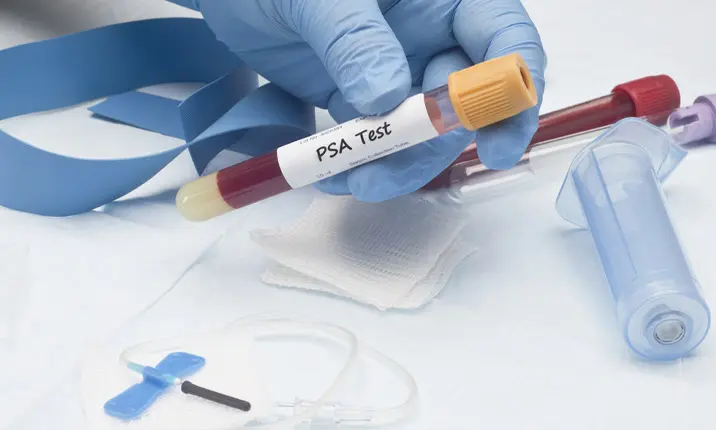What is prostate cancer?
Prostate cancer affects a man's prostate gland, the organ involved in the production of semen. It also produces a protein, called prostate-specific antigen, or PSA, which is a key indicator of a healthy prostate. A healthy man without prostate cancer should only have a small amount of PSA circulating in his blood, however problems with the prostate can cause the gland to produce more PSA than normal. Prostate cancer can, but not always, cause elevated PSA levels. While prostate cancer typically grows slowly and stays restricted to the gland, there are cases when it can be extremely progressive and spread beyond the prostate.
What are the symptoms?
There may not be symptoms in the early stages of prostate cancer but, as it advances, the following may be noticed:
- Trouble urinating
- A weaker urine stream
- Erectile dysfunction
- Blood in the semen
- Discomfort in the pelvic area
- Bone and back pain
Who is at risk of prostate cancer?
Men are more likely to be at risk of prostate cancer when:
- they are 50 years or older.
- they have a family history of prostate cancer.
- they are of African ancestry.
How is prostate cancer detected?
As prostate cancer doesn't have symptoms in its early stages, it would be useful to be screened for it so any cancer can be detected and treated before symptoms arise. Presently, a PSA test is the most effective and accurate means of screening for prostate cancer.
What is a PSA test?
A blood test will be needed to measure the amount of PSA (prostate protein) in the blood. The resultant levels of PSA will help a urologist diagnose prostate cancer, determine a prognosis for those who have prostate cancer, and track progression of the cancer, or a patient's response to treatment.
What are the limitations of a PSA test?
The level of PSA is not an accurate way of assessing problems in the prostate as some men who have prostate cancer do not have elevated PSA levels. Elevated PSA levels may not necessarily point to cancer, but may be a result of an infection or an enlarged prostate. A PSA test alone may not be entirely conclusive for diagnosis and treatment of prostate cancer. Speak with your doctor regarding interpretation of PSA test results, diagnosis and, if necessary, treatment options.
PSA test advantages
- It can help detect prostate cancer before any symptoms show up.
- Fast-growing cancer can be detected early, and treatment may stop the cancer from spreading.
- It is an option for screening men at risk of prostate cancer.
PSA test disadvantages
- Raised PSA levels don't necessarily point to prostate cancer.
- A PSA test can miss prostate cancer.
- Raised PSA levels may mean more diagnostic tests, including a biopsy, which can have side effects such as pain, infection and bleeding.
Who should take a PSA test?
Men over 50 years old, or those with other risk factors for prostate cancer. Speak to a doctor about the advantages and disadvantages of taking a PSA test before deciding to take one.
Questions to ask include:
- Do I have a higher risk of prostate cancer?
- How accurate is a PSA test?
- What is the next course of action after getting the test results?
- How conclusive are the results?
- Should I consider treatment options if the results reveal a slow-growing prostate cancer?
- What are the common problems that can arise due to the treatment of prostate cancer?
Would having a baseline PSA test help?
A baseline PSA test is done at a stage in your life in your 40s when your risk of prostate cancer is low and is used to evaluate your risks of getting prostate cancer in the future. If the test reveals a slightly higher level of PSA than most men of the same age, this could indicate an increased likelihood of developing prostate cancer in the future. The doctor may then decide to schedule regular PSA tests to track a patient's PSA levels over time. The trending of these PSA results instead is more useful in the stratification of one's risks of developing prostate cancer.
Other screening options
The PSA test is just one tool a doctor will use in the screening and diagnosis of prostate cancer. If the results lead your doctor to suspect prostate cancer, they will recommend a prostate biopsy. Here, samples of tissue are removed for laboratory examination. A diagnosis of cancer will be based on the biopsy results. To improve the accuracy of these biopsies, most urologists will advise that you undergo a magnetic resonance imaging (MRI) scan of the prostate to seek out specific areas of the prostate to target.
Should you suspect anything, address your concerns with your urologist, who will be able to provide you with more accurate diagnosis of your condition.














